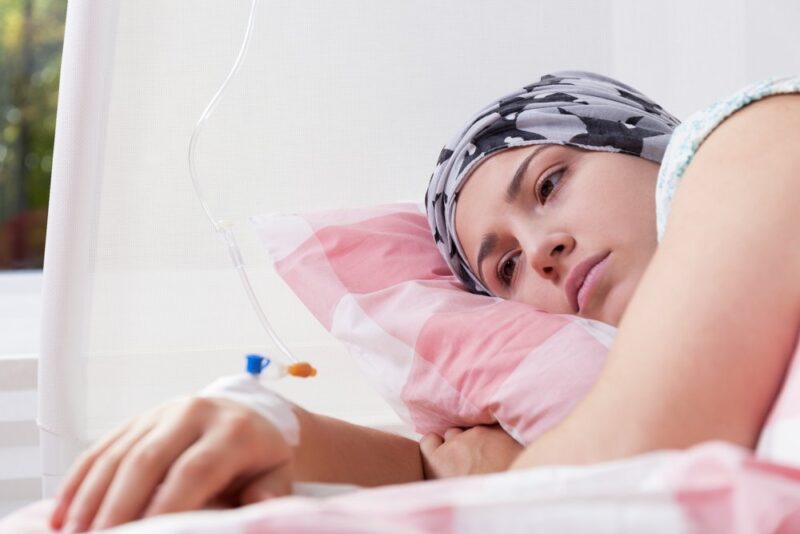Cancer is one of the most terrifying diseases afflicting the human race. It can affect nearly every part of the human anatomy and appears in varying stages, depending on when it is caught. When it comes to the elderly, cancer is especially scary, given that the human body’s ability to heal decreases with age. Here is what we know about diagnosing cancer in the elderly, and what you can do if your loved one is diagnosed.
What We Know
Cancer, at a basic, biological level, is a mutation of cell growth. Instead of the body creating good, new, healthy cells to replace cells naturally dying within the body, the body creates mutated cells. These cells sap resources from the surrounding area, block blood flow, and stop internal organs from doing their jobs properly. Some cancers are minor and do not massively affect health; some require surgical removal; some need to be shrunken with radiation and chemotherapy, which wipe out certain kinds of cells (though these processes often hurt the immune system in the process).
“Cancer incidence,” according to Berger et al in Transactions of the American Clinical and Climatological Association, “increases exponentially with age,” which is an increasingly important fact as the large “baby boomer” population ages. This means that many more people will be diagnosed with cancer than in previous generations, since the life expectancy and number of older people has increased. Aging is the greatest risk factor for developing cancer, so this portion of the population needs to be concerned with cancer development and treatment most of all.
We also know that cancer is more deadly in the elderly–16 times greater in those over 65 compared to younger patients. Thus, the priorities are early detection, effective treatment, and new research into improved treatments.
We can expect that cancer will become an even more present threat to the health of individuals in America, especially for the 70 million people over 65 that will be living here in 2050.
What You Can Do to Help
Get a second opinion on treatment. This may seem arduous or time-consuming, but the more doctors investigate a cancer, the more information you will have. If you are able to see other doctors quickly after a diagnosis, do so, but do not delay treatment for very long, since some cancers are fast-growing and require immediate treatment.
Consider all possible treatment options. Some cancers respond better to chemotherapy and radiation; others are best treated with surgery or other options. Most doctors will recommend a combination or series of treatments (“If chemo works well, we don’t do surgery”; “If the surgery is not successful, we will employ radiation”), but they need to always keep in mind the age and health of their patients–in this case, the elderly. Finding a doctor who specializes in cancers in older people is ideal because they will have more comfort estimating healing time and medicine dosages.
Create a plan. We cannot stress this enough–have a plan for doctor’s visits, hospital stays, medicine dosages, and everything you can think of. Many elderly people undergoing cancer treatment will require round-the-clock care due to the invasive nature of cancer treatments like surgery and chemotherapy, but many people find that one family member or caretaker is not enough. Working in shifts prevents exhaustion and makes the entire caregiving group more emotionally prepared for the difficult work of caring for loved ones affected by cancer.
Have hope. Many elderly people who fall ill suffer from depression and anxiety. Although it may be hard at points, keeping positive and showing an unfailing amount of hope will help keep your loved one happy–and it is well documented that happy patients heal more quickly and effectively. Many forms of cancer are not immediate cause for mortal fear anymore, so continue to hold out hope that all will be well.
Above all else, it is important to recognize family histories of cancer and to get elderly loved ones screened regularly for cancer, even without symptoms. If caught early, cancer has a much greater chance of being eradicated from the human body, and your loved one has a much greater chance of healing more quickly and independently. Frequent screenings and healthy living choices such as frequent physical activity, not smoking, and eating well can prevent most cancers and keep the elderly living longer and stronger.
Sources
American Society of Clinical Oncology. (2012). Cancer in Older Adults. Cancer.net.
Available at http://www.cancer.net/sites/cancer.net/files/cancer_in_older_adults.pdf. Retrieved 1/11/2016.
Berge, N.A., Savvides, P., Koroukian, S.M., Kana, E. F., Deiling, G. T., et al. (2006). Cancer in the Elderly. Transactions of the American Clinical and Climatological Assocation. (117): 147-156. Available online at http://www.ncbi.nlm.nih.gov/pmc/articles/PMC1500929/. Retrieved 1/11/2016.
Laliberte, R. (November 26, 2011). 20 Ways Never to Get Cancer. HealthCancer. Prevention Magazine. Available at http://www.prevention.com/health/health-concerns/everyday-cancer-prevention-tips. Retrieved 1/11/2016.
